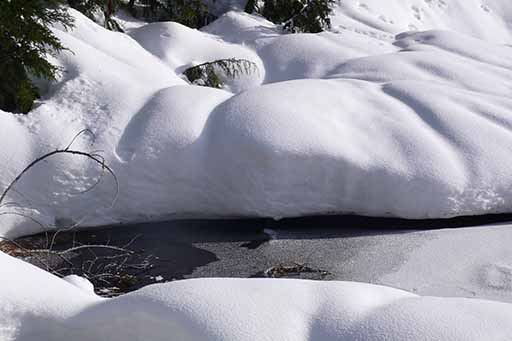Something to keep in mind…
The loss of species, ecosystems and genetic diversity
…
is already a global and generational threat.
…
Protecting the invaluable contributions of nature
…
will be the defining challenge of decades to come.
…
Sir Robert Watson
Chair IPBES
..
.

~
OKAY, I GIVE UP
~
So, I go to National Geographic…
Just like on any other blogging day and guess what the front-and-center headline is:
Ouch.
Not sure exactly what they mean when they say “Season Finale Monday 9/8 C”
Oh, never mind…
Just never mind. At first glance, I thought they meant 9 degrees / 8 degrees Centigrade. Huh?
Nope, 9pm/8pm Central… whew! Well, okay, then…
But, there was this on Reddit
The following is a very long essay by Marc Doll. Though dire, it is realistic. It is worth reading the whole thing. Persevere.
There is hope. We need to immediately respond to the adverse effects of climate and prepare for future impacts.
First and foremost, we must stop consuming products, wasting products, and throwing away products which are ultimately just resources extracted from the Earth. We are now consuming 1.7 Earths.
Doll pulls together much of the concerning Climate-Breakdown information in one very clear rant. The bottom line is that things are urgent. (Note that the weekly CO₂ levels at Mauna Loa, Hawaii, at the end of April 2019 reached 414.32 ppm per Arctic News.) The sooner we take action, the better it will be for all species.
Overwhelming. Yes. Realistic. Yes.
~
Climate
By Marc Doll
I realize there is something I have known for some time but have never said, and, since I have just spent another 4 hours of my life in climate change academia I have to get this out of my system.
Please understand that many you reading this won’t live to an old age… and likely will start scrolling after one or 2 more paragraphs… (edit…Ok I was wrong on this point. This is now my 2nd most shared post of all time..(edit)…make that my most shared)
The IPCC report and Paris accord are incredibly overly optimistic and that commits the world to a target that means the death of hundreds of millions if not more.
But it is worse than that.
Even the commitments made by countries in the Paris accord don’t get us to a 2 degree world.
But it is worse than that.
The 2 degree target is now unattainable (unless of course the entirety of civilization does a 180 today…) and is based on geo-engineering the climate of the earth as well as the sequestering of every molecule of carbon we have produced since 1987, as well as every molecule we are producing today, as well as every molecule we produce tomorrow…. with magical technologies that don’t exist, won’t exist and, even if they did would likely cause as many if not more problems than they fix.
But it is worse than that.
The 2 degree target of the IPCC does not factor in the feedback loops such as the increase absorption of heat due to a drastic reduction in the albedo (reflectivity) effect caused by the 70% loss of arctic ice,..- the release of methane from a thawing arctic. (there is more energy stored in the arctic methane than there is in coal in the world). This is called the methane dragon. If the process of the release of the methane, currently frozen in the soil and ocean beds of the arctic, which may have already begun, but if it spins out of control we are looking at an 8 degree rise in temperature.
But it is worse than that.
The report which gives us 12 years to get our head’s out of our arses underestimated the amount of heat stored in the world’s oceans, as we discovered in mid-January by 40%… so no, we don’t have 12 more years.
But it is worse than that.
The conservative, American Meteorological Society indicates that our willful blindness and greed will have effects well beyond the climate. The world’s oceans will see a 150% increase in acidity and over a full degree Celsius in warming. This well down the path to the Permian extinction where 96% of marine species disappeared forever.
But it is worse than that.
The IPCC report ignores the effects of humans messing up the Nitrogen cycle through agricultural fertilizers and more… Don’t go down this rabbit hole if you want to sleep at night.
But it is worse than that.
Sea level rise will not be gradual. Even assuming that the billions of tons of water that is currently being dumped down to the ground level of Greenland isn’t creating a lubricant which eventually will allow the ice to free-flow into the northern oceans; it is only the friction to the islands surface that is currently holding the ice back. Then consider the same process is happening in Antarctica but is also coupled with the disappearance of the ice shelves which act as buttresses holding the glaciers from free flowing into the southern ocean. then factor in thermal expansions; the simple fact that warmer water takes up more space and It becomes clear that we are not looking at maintaining the current 3.4mm/yr increase in sea level rise (which incidentally is terrifying when you multiply it out over decades and centuries.) We will be looking at major calving events that will result in much bigger yearly increases coupled with an exponential increase in glacial melting. We know that every increase of 100ppm of C02 increases sea level by about 100 feet. We have already baked in 130 feet of sea level rise. It is just a question of how long it is going to take to get there… and then keep on rising..
But it is worse than that.
Insects are disappearing at 6 times the speed of larger animals and at a rate of about 2.5% of their biomass every year. These are our pollinators. These are links in our food chain. These represent the basic functioning of every terrestrial ecosystem.
But it is worse than that.
58% of the biomass of vertebrate life on earth has been lost since 1970. That is basically in my lifetime!
But it is worse than that.
The amount of Carbon we add to the atmosphere is equal to a yearly a human-caused forest fire 20% bigger than the continent of Africa. Yes, that is every single year!
But it is worse than that.
Drought in nearly every food producing place in the world is expected to intensify by mid-century and make them basically unusable by the end of the century… Then factor in the end of Phosphorus (China and Russia have already stopped exporting it knowing this) and the depletion of aquifers and you come to the conclusion that feeding the planet becomes impossible.
But it is worse than that.
We can no longer save the society that we live in and many of us are going to be dead long before our life expectancy would suggest.
If your idea of hope is having some slightly modified Standard of living going forward and live to ripe old age… there is no hope. This civilization is over…
But there is hope.
There is a way for some to come through this and have an enjoyable life on the other side. Every day we delay can be measured in human lives. There will come a day of inaction when that number includes someone you love, yourself or myself.
So we have 2 options.
Wake the fuck up. If we do we will only have to experience the end of our society as we know it aka…the inevitable economic collapse which is now unavoidable, but be able to save and rebuild something new on the other side. This would require a deep adaptation. Words like sustainability would need to be seen as toxic and our focus needs be on regeneration. Regeneration of soil, forests, grasslands, oceans etc…. This is all possible.
Option 2 is the path we are on thinking that we can slowly adapt to change. This not only ensures we experience collapse but also condemns humanity to not just economic and social collapse but in a 4-6 or even an 8 degree world… extinction.
I am sick of pipeline discussions. I am sick of any argument that is predicated on the defeatist assumption that we will continue to burn oil at an ever-increasing rate simply because it is what we have always done. Fact is if we do we are not just fucked, we are dead. I am sick of people who don’t understand how their food is produced, and its effect on the climate.(both carnivores who eat feed-lot meat and vegans who eat industrially-produced-mono-cropped-veggies as they are equally guilty here. The consumption of either is devastating). I am sick of the tons of shiny new clothes people are wearing without realizing 1 Kg of cotton takes over 10 thousand Liters of water and incredible amounts of energy to produce. I am sickened by the amount of that same clothing hits the landfill in near new condition. I am sick of the argument that our oil is less poisonous than someone else’s. Firstly, no it isn’t and secondly, It doesn’t fucking matter. I am sick of people that can’t even handle the ridiculously-small, only-the-tip-of- the-iceberg-of-changes we need to accept; a carbon tax. I am sick of the fact that the political will seems only capable of focusing on the individual consumer through small measures like a carbon tax but no elected Party seems to have the fortitude to enact policies that take it to the small handful of companies that are responsible for 70% of our current C02 production. I am sick of my own hypocrisy that allows me to still use fossil fuels for transportation.
I am sick of those who use hypocrisy as an argument against action. I am sick of the Leadership of my country that argues we can have economic growth and survivable environment… we can’t. I am sickened by the normalizing of the leadership of our Southern neighbour who as the most polluting nation in the world officially ignores even the tragedy that is the Paris accord. I am sick that the next image I put up of my kids, cheese, pets or bread is going to gain immeasurably more attention than a post such as this which actually has meaning… I am sick about the fact that all the information I referenced here is easily discoverable in scientific journals through a simple google search but will be characterized by many as hyperbolic.
I am confused as to who I am more upset with. Those who have fallen for the denier propaganda, those who choose to be willfully ignorant, those who understand this issue and throw their hands up in a fit of lazy despair or those who are as cognitive as I am to the urgency of this issue yet continue living day-to-day feeling self-satisfied with their recycling, electric car, voting record or some other equally inane lifestyle modification while waiting for society to hit the tipping point so they don’t have to actually put their values into practice (which despite my recent life changes still more or less includes me). All that said…
There is a path forward.
But every day we delay the path forward includes fewer of us. Build community, build resilience, work for food security, think regeneration, plant food-producing trees, think perennial food production, turn your waste products into resources and if that isn’t possible, don’t consume it!
Eat food that does not mine the soil and is locally produced, eat meat that is grass fed in a holistic or intensively rotated (ideally holistically grazed in a silvopasture ) that is used to provide nutrients to vegetation, get to know a farmer or become one yourself. Don’t be a carnivore, herbivore or an omnivore… be a ‘greenivore’.
Park your car, do not vote for anyone who either ignores climate change or says we can have our cake and eat it too, quit your job if it is fossil fuel related (it is better than losing it… which you will), stop buying shit, stop buying expensive cars and overly large houses and then complain that local planet saving food costs more than Costco.
Stop buying things that are designed to break and be disposed-of, let go of this society slowly and by your own volition (its better than being forced to do it quickly),
Rip up your lawn and plant a garden with perennial veggies, fruit bushes, fruit trees and nut trees.
Learn to compost your own poop (it is easy and doesn’t stink). Buy an apple with a blemish, Get a smaller house on a bigger lot and regenerate that land, Plant a guerrilla garden on a city road allowance. Return to the multi-generational house,
Realize that growth has only been a thing in human civilization for 250 years and it is about to end and make preparations for this change. If you are perusing Wealth; Stop! Nothing on the planet is more destructive and brings upon more violence, pain and climate destruction and, by willful ignorance, all at arms reach and without the wealth seeker’s knowledge labour or effort. Teach these lessons and this reality to your children.
Buy only the necessities, Don’t buy new clothes-go to the thrift store. Don’t use single-use plastic or if you do re-purpose it, Unplug your garberator (yes Facebook spell check, that is a word) and compost everything,
Relearn old forgotten skills. Don’t let yourself get away with the argument that the plane is going there anyway when you book a holiday. Understand that there is no such thing as the new normal because next year will be worse,
Understand before you make the argument that we need to reduce human population … meaning the population elsewhere… that it is not overpopulation in China or India that is causing the current problem… It is us and our “western” lifestyle,
Understand that those that are currently arguing against refugees and climate change are both increasing the effects of climate change and causing millions of climate refugees… which will be arriving on Canada’s doorstep because Canada, due to our size and Northern Latitude, will, on the whole, have some of the best climate refugees.
Understand that every baby using disposable diapers is responsible for the equivalent of a cube van full and every woman using disposable feminine hygiene products is responsible for an equivalent amount of un-compostable incredibly high energy intensive waste that will be here for 500 years. Also, understand that there are alternatives to both.
Understand that the densification of cities is condemning those in that density to a food-less future.
Stop tolerating the middle ground on climate change. There is no middle ground on gravity, the earth is round, and we are on the verge of collapse.

HOT AIR NEWS ROUNDUP
Transformative policy change is necessary. We must consume less and also waste less. We need to steer away from the limited paradigm of economic growth. Our current economic system is not fit for fighting the loss of biodiversity that we are seeing and the consequences that has for us…
The Intergovernmental Science-Policy Platform on Biodiversity and Ecosystem Services (IPBES)
UN biodiversity report: What extinctions mean for humanity – A UN-backed report says a million species are at risk of extinction, and warns biodiversity loss and failure to conserve ecosystems has catastrophic effects on people as well as nature.
DW 5-6-19
They are the tireless stewards of the air, water and land from which we live. But the millions of species whose toil underpins our prosperity are gravely endangered by human activity, scientists say — and that imperils us in turn. … Biodiversity loss is as big a threat to humans as climate change, said UN biodiversity chief Robert Watson last week at a conference in Paris to release a landmark report on global biodiversity and ecosystems. … “The continuing loss of biodiversity will undermine our ability for poverty reduction, food and water security, human health and the overall goal of leaving nobody behind.”
A video from the above article…
More on the report…
Biodiversity crisis is about to put humanity at risk, UN scientists to warn
The Guardian 5-3-19
the report is a compilation of reams of academic studies, in this case on subjects ranging from ocean plankton and subterranean bacteria to honey bees and Amazonian botany. Following previous findings on the decimation of wildlife, the overview of the state of the world’s nature is expected to provide evidence that the world is facing a sixth wave of extinction. Unlike the past five, this one is human-driven.
And another comprehensive article about the UN Biodiversity Report…
A Million Species ‘Threatened with Extinction’
Global Research 5-6-13
Of the estimated 8 million animal and plant species on the planet, up to a million are threatened with extinction, many within a timespan of just decades, the report finds. … Around 10 percent of insect species are threatened with extinction, more than 30 percent of corals, sharks and marine mammals and more than 40 percent of amphibians. The average abundance of native species in most major land-based habitats has fallen by at least 20 percent since 1900. … The current rate of global species extinction is tens to hundreds times faster than the average over the last 10 million years. At least 680 vertebrate species have been driven to extinction since the 16th century and more than nine percent of all domesticated breeds of mammals we rely on for food and agriculture have gone extinct, with at least 1,000 more breeds still threatened.
Climate education for kids increases climate concerns for parents
PHYS ORG 5-6-19
“There’s a robust body of work showing that kids can influence their parents’ behavior and positions on environmental and social issues, but this is the first experimental study demonstrating that climate education for children promotes parental concern about climate change,”
30 Days of Wearing My Trash
The average American creates 4.5 pounds of trash per day but most people never think twice about the trash they make. Once it’s in the garbage can, it’s out of sight, out of mind. Rob Greenfield wanted to create a visual that would help people understand just how much trash they create and inspire them to make positive changes. So for 30 days, he lived just like the average American and he wore every piece of trash he created. 4.5 pounds a day really adds up! This is what it looked like.
To halt climate change, capitalism must be abolished
WWW 5-2-19
This Friday, high school students and youth around Australia will participate in national protests demanding immediate action to stem climate change and environmental destruction. … The various international agreements, backed by Australian governments, such as the Paris Accord, have all proven useless in addressing the environmental crisis. … The developing movement of youth and students in Australia and internationally on climate change is part of the political radicalisation of an entire generation. Young people today have grown up amid environmental destruction, perpetual US-led wars in the Middle East, and wholesale attacks on democratic rights. … The first step, therefore, in halting a climate disaster requires that the major corporations, above all those bearing central responsibility for pollutants, be taken out of private hands, and placed under public ownership and democratic control.
A pair of synchronized swimmers performed their World Championship routine in a pool full of plastic.
Mesmerising: Synchronized swimmers perform in plastic-littered pool
Presidential Candidate Jay Inslee Unveiled His First Major Climate Plan
EcoWatch 5-6-19
Dubbed the “100 Percent Clean Energy for America Plan,” the proposal would phase out coal over the next decade, requiring all power production to be emissions-free by 2035. The plan also mandates that all new vehicles be electric and commercial buildings must meet a zero-carbon standard by 2030.
North Atlantic Ocean productivity has dropped 10 percent during Industrial era – Phytoplankton decline coincides with warming temperatures over the last 150 years.
MIT News 5-6-19
Virtually all marine life depends on the productivity of phytoplankton — microscopic organisms that work tirelessly at the ocean’s surface to absorb the carbon dioxide that gets dissolved into the upper ocean from the atmosphere. … Through photosynthesis, these microbes break down carbon dioxide into oxygen, some of which ultimately gets released back to the atmosphere, and organic carbon, which they store until they themselves are consumed. This plankton-derived carbon fuels the rest of the marine food web, from the tiniest shrimp to giant sea turtles and humpback whales.
This woman, who just resigned as the UK government’s Shale & Gas Tsar, previously did paid work for the fracking firm INEOS…
UK fracking commissioner admits to deleting correspondence with industry
Greenpeace 4-29-19
Though Engel did provide a handful of emails in response to the request, there were no communications covering October 5, when she first entered the role, and December 30. … In her resignation letter to business secretary Greg Clark, Engel decried the government’s refusal to review the seismic activity standards that have made drilling incredibly difficult to carry out.
Study: For low-income countries, climate action pays off by 2050 – Economic benefits of mitigation arrive much sooner than previously thought.
MIT News 5-1-19
The study shows that beyond the benefits of reduced extreme weather in the long term, global mitigation efforts would also lower oil prices in coming decades, resulting in a significant economic boon for most poorer countries.
As World Burns, Clean Energy Growth Stalls for First Time in Nearly Two Decades
Earther 5-6-19
According to a report released on Monday by the International Energy Agency (IEA), installations of renewable energy plateaued in 2018 for the first time in nearly two decades of record keeping. Even if it’s just a temporary hiccup, a pause in installations is an extremely worrisome sign about the world’s ambition to address climate change.
OCO-3 Ready to Extend NASA’s Study of Carbon
NASA 4-29-19
From its perch on the space station, OCO-3 will observe near-global measurements of carbon dioxide on land and sea, from just after sunrise to just before sunset. … Since OCO-3 is a ‘passenger’ on the space station, we had to add the pointing mirror assembly to point independently of the station.” … The pointing assembly uses two pairs of mirrors to rotate in two complementary directions – one parallel to Earth’s surface, the other perpendicular. This setup allows OCO-3 to point to just about anywhere within view of the space station but also allows it to capture “snapshot maps” – detailed mini-maps of carbon dioxide – over areas of interest.
Climate extremes explain 18%-43% of global crop yield variations
PHYS ORG 5-3-19
Researchers … have quantified the effect of climate extremes, such as droughts or heatwaves, on the yield variability of staple crops around the world. … Overall, year-to-year changes in climate factors during the growing season of maize, rice, soy and spring wheat accounted for 20%-49% of yield fluctuations.
LEGISLATION
Can New York Make Buildings Super-Efficient Really Quickly? – By 2030, the city’s large buildings must cut their carbon emissions by 40 percent. Here’s how that can happen.
Mother Johes 4-4-19
New York City passed the most aggressive climate bill in the nation in April, and the city got it done in a truly New York way. … The city’s new “80-by-50” law prescribes several benchmarks along the way to the ultimate goal in 2050. Some buildings will need to produce real results soon; different types of buildings will be subject to specific targets. The city’s first big milestone arrives in 2030: By then, New York buildings will need to have collectively cut their carbon emissions by 40 percent.
Los Angeles targets eradication of petrol cars by 2050
Climate Home News 4-4-19
Los Angeles’ car-choked arteries will run clean within decades, according to a green reform package unveiled by mayor Eric Garcetti on Monday. … The legislation, which builds upon a previous 2015 sustainability plan, calls on the city to hike its percentage of zero emission vehicles from 1.4% in 2018 to 25% by 2025, 80% by 2035 and 100% by 2050. To do this, the City Town Hall intends to raise its number of publicly available electric-vehicle chargers from 2,100 to 28,000.
Climate emergency declarations spread across UK after Extinction Rebellion
Climate Home News 5-1-19
in the last week, both the Scottish and Welsh governments have declared climate emergencies, following the lead of dozens of councils across the country, hoping to trigger “a wave of action” commensurate with a crisis.
“The Pact for a Green New Deal”: Visionary Roadmap From Canadian Coalition Launched
Common Dreams 5-6-19
A broad Canadian coalition representing scores of groups unveiled a visionary roadmap on Monday for a Green New Deal that tackles the climate crisis as well as social and economic justice.
Sign up here: The Pact for a Green New Deal, CANADA
The Pact for a Green New Deal
A bold and far reaching plan to cut emissions in half in 11 years in line with Indigenous knowledge and climate science, create more than a million good jobs you can support a family with, and build inclusive communities in the process.
FOSSIL FUELS
Fracking is not economically viable and is cash flow negative. The US shale producers last year were negative 69 billion dollars. Excellent…
What fracking bonanza?
RT 5-4-19
They look at a story out of China only last month in which the government was forced to suspend fracking operations after angry citizens stormed government buildings after a fracking-induced earthquake in Gaoshan destroyed tens of thousands of homes and killed two people.
Much of the world lives with dangerous levels of air pollution
Unearthed 4-4-19
The entire populations of India, Bangladesh, Pakistan, China, Nigeria, Indonesia and Mexico are exposed to levels of PM2.5 pollution that exceed World Health Organisation (WHO) guidelines and about 75% of people in the EU live in areas with above WHO PM2.5 levels.
Turkey defiant in face of criticism over gas drilling off Cyprus
DW 5-6-19
Despite coming under fire from both the EU and the US, Turkey says it will press on with plans to drill for oil and gas off Cyprus. Arrest warrants have been issued for the crew of a Turkish drilling ship in the area.
Wildly Underestimated Oilsands Emissions Latest Blow to Alberta’s Dubious Climate Claims
The Tyee 5-1-19
In a bizarre arrangement, the Alberta oil patch pays for its own oversight through the Alberta Energy Regulator — a regulatory body 100-per-cent funded by the fossil fuel sector. What could go wrong? The latest boondoggle was revealed by an Environment Canada study published in the prestigious journal Nature Communications. It showed the methodology that energy companies have used for years to calculate carbon dioxide and methane emissions from oilsands surface mining operations underestimated contributions to global warming by a whopping 64 per cent.
With Renewables so Competitive, Big Plans for Oil and Gas Investments Look Risky
Desmpog 5-5-19
As the time left to avoid climate catastrophe counts down, the U.S. oil and gas industry is making a massive bet on exporting its products to the rest of the world for the next several decades — a sure recipe for blowing past the 1.5°C (2.7°F) increase in temperatures scientists say would avoid the worst effects of global warming. … “Pipeline Bubble,” a new report from Global Energy Monitor, a fossil fuel and alternative energy research network, details this planned boom in new oil and gas pipeline infrastructure in North America.
WEATHER
Losing Marine Stratocumulus Clouds Could Create a Mega-Hothouse Climate
Category Six 5-6-10
The paper, from a team of California Institute of Technology scientists led by Tapio Schneider, was called Possible climate transitions from breakup of stratocumulus decks under greenhouse warming. The study used a specialized ultra-high-resolution model (50-meter grid size) that was detailed enough to resolve individual updrafts and downdrafts in stratocumulus clouds. Global climate models, with their grid sizes of ten of kilometers, cannot resolve such fine-scale processes. The new model found that when carbon dioxide concentrations increased from current levels of about 410 ppm to 1200 ppm, stratocumulus clouds over the subtropical and tropical oceans became unstable and broke up into scattered cumulus clouds
After the drought is before the drought: Last year’s drought is still impacting soils in Europe, and though it is still early in the year, farmers already have to water their fields. Is this set to become the new normal?
DW 5-6-19
“We can see here that the first 10 cm of the surface are as dry as dust,” he says. “But it ought to be moist so the plants can strike roots.” … As one of Germany’s fourth driest years since the National Meteorological Service (DWD), started recording rainfall patterns in 1881, Schwarz says he had to water his fields with an overhead sprinkling system from last July to September. Although he managed to save most of his harvest, high water costs minimized his profits.
Excessive rainfall as damaging to corn yield as extreme heat, drought
Science Daily 4-30-19
Recent flooding in the Midwest has brought attention to the complex agricultural problems associated with too much rain. Data from the past three decades suggest that excessive rainfall can affect crop yield as much as excessive heat and drought. In a new study, an interdisciplinary team linked crop insurance, climate, soil and corn yield data from 1981 through 2016.
Over a Million Forced to Evacuate as ‘Potentially Catastrophic’ Cyclone Fani Makes Landfall in India
Common Dreams 5-3-19
A storm that meteorologist Eric Holthaus characterized as “one of the strongest” cyclones in India’s recorded history made landfall on Friday amid warnings of “potentially catastrophic” wind, rain, and ocean surges.
India Cyclone Fani evacuation efforts hailed a success
BBC 5-9-19
Dozens of villages on the Bangladesh coast have been submerged, officials say, and more than a million people have been moved to safety. … At least four people have been killed and 63 injured, Bangladesh’s junior disaster minister Enamur Rahman told reporters. … Fani is one of the strongest cyclones to hit India in the last 20 years, according to the state-run India Meteorological Department.
Steve King Tells Iowans Hit By Flooding Not to Worry Because Maybe All That Rain Will Make Deserts Green
Earther 5-6-19
On Tuesday, parts of downtown Davenport, Iowa dramatically flooded after temporary flood barriers failed to stave off the gushing Mississippi River—which has crested to near record-setting levels in parts of Iowa and Illinois after hard-hitting snowfall this winter and heavy rain (such as that bomb cyclone in March). It’s part of a particularly bad flood season statewide. … “Seventy percent of the earth is covered by water. If the earth warms, then there is evaporation that goes into the atmosphere. According to Newton’s First Law of Physics, what goes up must come down,” King added, per the City Journal.”
Climate change has U.S. fund managers adjusting agriculture investments
Retuers 5-6-19
After historic floods devastated Midwestern agricultural states this spring, some fund managers are evaluating how climate change will affect the long-term value of companies that make or sell products ranging from tractors to fertilizer. The issue is not simply the unpredictability of weather. Instead, fund managers say, they are struggling to model how extreme weather events from droughts to more powerful storms will affect commodity prices and, in turn, spending by farmers on equipment or seeds.
Weather systems crossing the Equator is a big deal. Watch the two-part video (part one here)…
Rarity: Cyclone Fani Originated in Southern Hemisphere & Crossed EQUATOR
Paul Beckwith 5-4-19
Rare Cyclone Fani hit NE India today as a strong Category 4 storm, just a 2 mph under Category 5. It is very rare for a April cyclones to make landfall in India as most curve east. I was curious as to where and when the first noticeable low pressure center formed for Fani; I carefully examined surface winds and Mean Sea Level Pressure on Earth Nullschool and found that:
• The first low pressure disturbance was discernible April 23rd 08:00 Local time in the Southern Hemisphere (2 degrees S latitude).
• It crossed the Equator, the core changing from circular to elongated multiple times, and amplified with SSTs of 29-31 C.
Part One
[VIDEO]

ADAPTION AND RESILIENCE
Scientist Dream of a Future Where Your AC Unit Sucks Carbon Out of the Sky
Earther 5-6-19
The idea is essentially a microgrid that runs on the carbon your air conditioner caught, which is pretty cool considering that carbon is warming up our planet and driving humanity toward a cliff. The authors of the paper estimate that, in a specific Frankfurt, Germany, office building, this technology could be capable of producing more than 600,000 gallons of fuel in a year from the carbon captured, reports Fast Company.
Field Study Finds Pellet-Fed Stoves Cut Air Pollutant Emissions 90%
Science Daily 4-30-19
A field study finds that a new cookstove design, which makes use of compressed wood pellets, reduces air pollution by about 90% for a range of contaminants associated with health problems and climate change. The findings stem from a Rwanda field study designed to test the performance of the stoves in real-world conditions.
Heat pumps may soon be charged with propane instead of greenhouse gases
Tree Hugger 5-5-19
One point that troubled me was a reliance on heat pumps, which I considered problematic because they are full of Fluorinated gases (F-gases) that are powerful greenhouse gases, as much as 1700 times worse than Carbon Dioxide.
Russia prepares to ban single-use plastic dishes and cutlery
RT 5-6-19
If the initiative becomes law, Russia would follow the EU which restricted single-use plastic cutlery, cotton buds, straws, and stirrers, in order to fight excessive plastic waste earlier this year.

WILDLIFE & THE ENVIRONMENT
The World Lost a Belgium-sized Area of Primary Rainforests Last Year
WRI 4-15-19
The tropics lost 12 million hectares of tree cover in 2018, the fourth-highest annual loss since record-keeping began in 2001. Of greatest concern is the disappearance of 3.6 million hectares of primary rainforest, an area the size of Belgium. … The data reveals that despite a growing number of zero-deforestation commitments from governments and companies, primary rainforest loss hit record highs in 2016 and 2017 due to fires and remained above historical levels in 2018.
Trump administration to roll back rare beetle protections opposed by oil lobby
The Guardian 5-1-19
The American burying beetle, a shiny black bug covered with orange splotches, feeds it young from carcasses it buries, making it vulnerable to disruptions in soil. The species was listed as endangered in 1989. … The beetle has been reduced to about 10% of its historic range, according to the Fish and Wildlife Service. It was native to 35 US states and has been eradicated from all but nine.
Climate extremes: Impact on global crop yield variations
Science Daily 5-3-19
Climate extremes, such as drought, heatwaves, heavy precipitation and more are responsible for 18 to 43 percent of variation in crop yields for maize, spring wheat, rice and soybeans. according to a new article. The researchers have also identified global regions which are highly susceptible to extremes and also supply a high proportion of the world market. Climate change is likely to make these areas more vulnerable in the future with consequent impacts on world markets.
B.C. has a whopping 1,807 species at risk of extinction — but no rules to protect them
The Narwhal 5-3-19
With the highest national number of plants and animals at risk of disappearing, B.C. can’t afford to backtrack on promises to introduce endangered species legislation
Cold-blooded sealife runs double heat risk
Climate News Network 4-30-19
When it comes to global warming, there may no longer be plenty of fish in the sea: new research suggests that cold-blooded sealife may be twice as likely to be at risk in its natural habitat as land-dwelling ectotherms.
More Than 1,000 Amphibians We Barely Know Could Soon Vanish, Scientists Say
Earther 5-6-10
We live in a time of never-ending bad news when it comes to our natural world. The latest involves amphibians like frogs, toads, and salamanders. A new study out Monday offers further evidence of how imperiled the world’s 8,000 or so known species are. In fact, around 50 percent of them may be threatened with extinction, per the new study, not the 40 percent that’s the current official estimate.
Data with Flippers? Studying the Ocean from a Seal’s Point of View
NASA 5-2-19
Siegelman is using data from a single tagged southern elephant seal to study small-scale ocean features in a little-known part of the ocean around Antarctica. She is a visiting research student from the University of Western Brittany in Brest, France, at NASA’s Jet Propulsion Laboratory in Pasadena, California. … Weighing as much as a midsize pickup truck, southern elephant seals may look sluggish on land, but in the water they’re endurance athletes. … analyzed a three-month foraging voyage by a female seal, during which the animal logged an impressive 3,520 miles (5,665 kilometers) and dove 6,942 times. Most seals from the Kerguelen Islands forage to the east, but this particular seal made a beeline to the west to an area in the Antarctic Circumpolar Current where there’s a standing meander – a place where the topography of the ocean floor creates a permanent bend in the path of the current.

PROTESTS • EXTINCTION REBELLION • RESISTANCE
Fridays for Future
‘Beautiful Trouble’ Grows With Friday Climate Strikes on Multiple Continents
Common Dreams 5-3-19
The Fridays for Future website has 725 strikes mapped out for the day. They cover the Americas from Canada to Chile; Europe from Norway to Italy; Africa from Mauritania to South Africa; Asia from South Korea to India in Asia; and multiple marches in Australia and New Zealand.
A letter from the young climate strikers to the G7…
We, the climate generation, demand the G7 set an example
Climate Home News 5-6-19
By Student Climate Strikers
Dear ministers of the G7 environment meeting,
We are writing to you not just as a group of young climate activists fighting for our future, but as citizens fighting for the well-being of our countries. Our future is currently uncertain because of our leaders’ constant need for economic growth at the expense of our environment.
Greta Thunberg
The hounding of Greta Thunberg is proof that the right has run out of ideas
The Guardian 5-1-19
Over the past few days, something extraordinary has happened in our politics. A bunch of grown men have begun bullying a schoolgirl. Perhaps you already know who I mean: Greta Thunberg, she of the pigtails and school strikes, who came to Westminster last week and slammed adoring MPs for posturing rather than taking action on climate breakdown, then hoofed it over to St Pancras for the 36-hour train ride back to Stockholm. … Amid this virtuoso vulgarity and sheer crass panic lies a political strategy that has rarely been used in Britain. It can be defined as denying your opponent the legitimacy to speak, not because of what they are saying or what they’ve done, but simply on account of who they are.
Extinction Rebellion
JOIN XR USA: on their website
XR NEWSLETTERS & EVENTS: on their website
XR USA: on YOUTUBE
BREAKING – @XrYouth lock their necks to Parliament Square today to demand that after passing the motion to declare an environment and climate emergency the UK government now halts biodiversity loss, goes net #ZeroCarbon2025 and create a #CitizensAssembly.pic.twitter.com/xWKnMImRku
— Extinction Rebellion (@ExtinctionR)
Climate Weekly: Emergency, meet technocracy
Climate Home News 5-3-19
The UK’s net zero emissions plan certainly sorted the technocrats from the activists. In a 277-page report, the Committee on Climate Change set out how Britain could stop changing the climate by 2050, calling for legislation to make it happen. … Applying it to tough policy and investment decisions like expanding Heathrow Airport or opening a new coal mine (decisions backed by both major parties) is another. The UK has a projected shortfall against existing emissions targets from the mid-2020s.

CLIMATE STUDIES
Clean air for some: Unintended spillover effects of regional air pollution policies
Science Mag 4-24-19
China has enacted a number of ambitious pollution control policies to mitigate air pollution in urban areas. Unintended side effects of these policies to other environmental policy arenas and regions have largely been ignored.
… co-benefits of lower CO2 emissions and reduced water consumption in the target region are achieved at the expense of higher impacts elsewhere, through outsourcing production to less developed regions in China.
Rapid permafrost thaw unrecognized threat to landscape, global warming researcher warns
Science Daily 4-30-19
Researchers … found carbon emissions have the potential to double the climate feedback associated with permafrost thawing because abrupt thaw releases more methane. It will also have drastic effects on landscape, from altering traditional travel and hunting patterns in the North, to causing costly infrastructure damage to roads and rail lines.
Marine microbes may fuel ocean warming
Climate News Network 5-6-19
The shipboard scientists looked in depth at processes in highly productive waters off the South American coasts, and at the more or less barren waters south of the equator that cycle in a set of currents known as the South Pacific Gyre. … They did so to estimate the fate of tiny green plants – plankton – as they flourished in the ocean surface, and then perished and sank to the depths. ,,, these are instances of positive feedback: planetary responses that seem overall to make climate change more likely, and climate extremes more hazardous.
Researchers Now Have Even More Proof That Air Pollution Can Cause Dementia
Mother Jones 5-2-19
Scientists have published a wave of studies that reveal that air pollution is much worse for us than we had previously imagined. The evidence is so compelling, in fact, that many leading researchers now believe it’s conclusive. “I have no hesitation whatsoever to say that air pollution causes dementia,” says Caleb Finch, gerontologist and the leader of USC’s Air Pollution and Brain Disease research network, which has completed many of these new studies.
Rapid ice loss in early April leads to new record low
Nationa Snow & Ice Data Center 5-2-19
April reached a new record Arctic low sea ice extent. Sea ice loss was rapid in the beginning of the month because of declines in the Sea of Okhotsk. The rate of ice loss slowed after early April, due in part to gains in extent in the Bering and Barents Seas. However, daily ice extent remained at record low levels throughout the month.
Fast Arctic melt could cost $70 trillion
Climate News Network 4-26-19
If the world goes on burning more and more fossil fuels – this is called the business-as-usual scenario – then global temperatures could rise to 4°C above the historic average by 2100. The bill for what the scientists call “the most expensive and least desirable scenario” is set at $2197 tn. And, they stress, their forecast $70 tn is just the extra cost of the melting Arctic.
Global Warnings
Paul Beckwith: “I declare a global climate change emergency to claw back up the rock face to attempt to regain system stability, or face an untenable calamity of biblical proportions.”
Kevin Hester: “There is no past analogue for the rapidity of what we are baring witness to. There has been a flood of articles … 2C is no longer attainable and that we are heading for dangerous climate change”
Magi Amma: We need to turn on a dime at mach nine!
…
Equivalencies:
• 1 gigatonne equals one billion tons
• 1 gigatonne of carbon equals 3.67 gigatonnes of CO2
• 1 part per million of atmospheric CO2 is equivalent to 7.81 gigatonnes of CO2
• 1 part per million of atmospheric carbon is equivalent to 2.13 gigatonnes of carbon





